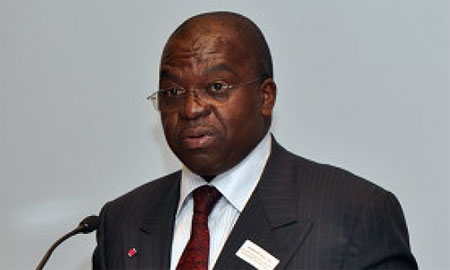Minister of Economy, Planning and Regional Development Louis-Paul Motaze believes “it is an incontestable fact that foreign direct investment (FDI) is critical for our economy as it enters a new phase of modernisation.”
Is it realistic to see Cameroon as an emerging market by 2035 by upscaling investment in energy, transportation and mining? The Growth and Employment Strategy Paper (GESP) takes the country up to 2020 and is considered the first stage of our long-term vision. I am fairly confident that the goals are realistic. The Government’s approach is to link technology with agriculture so we can climb the value chain. It also seeks to make energy more efficient so that industry can work at full capacity. In transportation, we want to develop roads, airports and seaports adapted to the new context. Finally, we want to see the private sector act as an engine of growth for the real economy.
What role have you given the private sector on industrial and infrastructure projects through to 2020?As in most world economies, the private sector in Cameroon is the main source of value-added growth. Its role is to create wealth and be productive. Up to 2020, we want to focus on growth, employment and governance. These will be driven by all social agents, but particularly by private companies. We are convinced that private enterprise has a major role as a growth driver, especially via partnerships. This will also generate interest in industry and infrastructure among foreign and domestic investors.
‘THE GOVERNMENT PLANS TO GIVE SMALL BUSINESSES A COMPETITIVE BOOST...WE WILL ROLL OUT PROGRAMMES TO TEACH SMES HOW TO DEVELOP LOCAL VALUE CHAINS’
|
How has the quality of Government spending improved with the signing of partnership agreements?The concept of public-private partnership (PPPs) is a novel one in the sense that it allows us to tap the private sector effectively while improving the quality of public services. In Cameroon, most of our large-scale public investment projects were led by state-owned firms. But given the multiplicity of construction sites as a result of the country’s economic takeoff, we decided to create an institutional framework for PPPs. With the framework in place, the state can now cede ownership of a project to the private sector and still profit from the technical and financial know-how.
Where do small and medium enterprises (SMEs) fit into your strategy of improving overall competitiveness?The Government plans to give small businesses a competitive boost so they can generate employment. To that end, we will back certain productive sectors and roll out programmes to teach SMEs how to develop local value chains and use comparative advantages. Some of the measures include financial and technical support, as well as the creation of a “Made in Cameroon” label to publicise products at trade fairs. We also want to ensure that domestic firms are given precedence in the public procurement process.
How is foreign direct investment (FDI) important when carrying out these megaprojects?It is an incontestable fact that FDI is critical for our economy as it enters a new phase of modernisation. For example, we need CFA 4 billion (£5.22 million) to finance our mining projects, a figure that is eight times the national investment budget. The projects are not only very expensive, but also complicated. Foreign investors provide the financial support we need as well as significant technical expertise.
What is the best way to attract foreign investors to Cameroon? The country’s long-term development will require heavy investments. But we also know that investors only finance projects that can guarantee healthy returns. Improving the business climate is our major tool. To generate interest among investors we first resort to Cameroon’s image of political stability and sound macroeconomics. In addition, we try to create win-win partnerships in which the Government retains a stake in production. This is always done within the framework of Law 2006/012.

0 COMMENTS